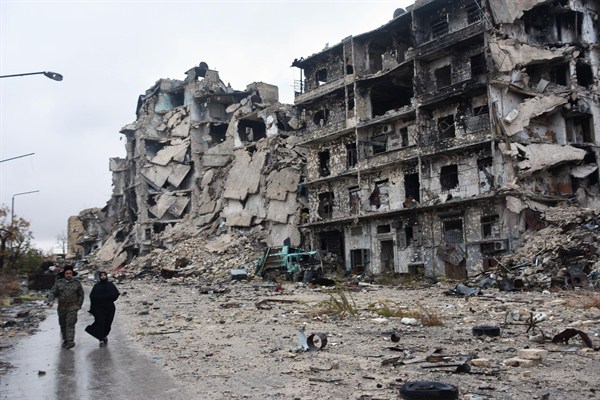The harrowing image last month of a Turkish police officer standing over the Russian ambassador he just shot, while blaming Moscow for the devastation in Syria, captures a key foreign policy challenge for U.S. President-elect Donald Trump: How can he attempt to stabilize the Middle East by bringing conflicts to a close, rather than letting Russia and Iran lead the region into further cycles of repression and violence under the rubric of fighting terrorism?
Trump’s current defense priority—“to crush and destroy” the so-called Islamic State—plays right into Russian and Iranian machinations, with their selective definitions of terrorism and scorched-earth tactics. The graver dangers to American security from Russia and Iran themselves don’t appear to bother Trump, despite warnings from the Pentagon.
The assassination of Russia’s ambassador to Turkey did not derail Moscow, Tehran and Ankara from quickly agreeing to coordinate strategy in Syria, without consulting or including the United States, the European Union or the United Nations. If anything, the ambassador’s death created more common ground for Russian President Vladimir Putin, who declared that “the only response [is] stepping up the fight against terrorism.” But the Ankara shooter didn’t belong or pledge allegiance to a terrorist group. He was, in his own words, avenging the slaughter of civilians in eastern Aleppo by Russian, Iranian and Syrian forces.

